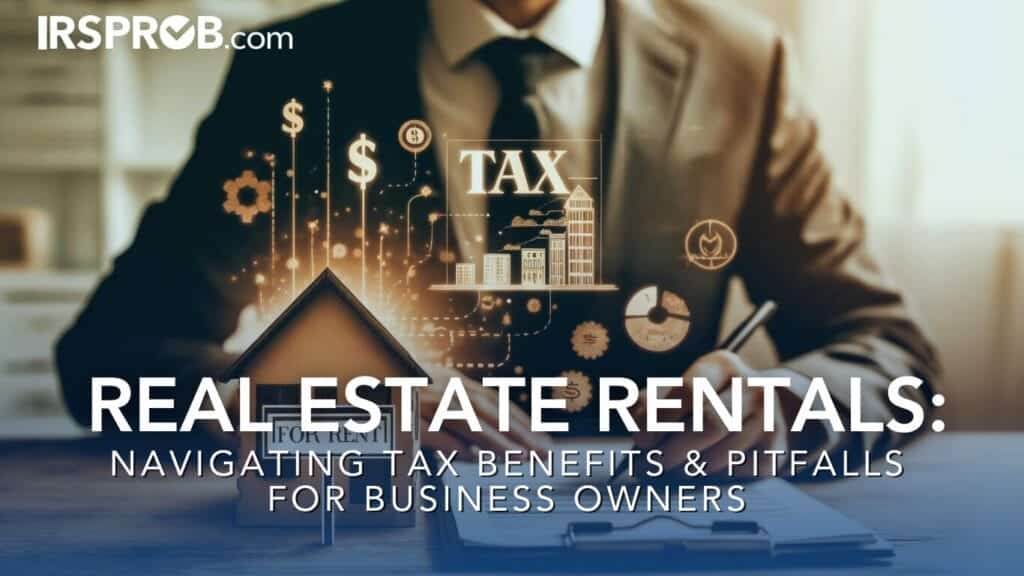
Investing in rental properties can be a lucrative endeavor, but it’s crucial for business owners to understand the tax implications that come with it. Whether you’re purchasing your first rental property or expanding your portfolio, being aware of recent tax insights can help you make informed decisions that maximize your returns and minimize potential tax burdens.
The Importance of Accurate Profit Projections
One of the first steps in evaluating a rental property investment is making a well-reasoned projection of its potential profitability. This involves considering both the property’s ability to generate rental income and the tax implications that could affect your overall return.
The Bradford Tax Institute offers a tool called the “Analyzer,” which is designed to help investors calculate the after-tax adjusted rate of return on a rental property. This tool allows you to compare your projected returns from a rental property against other investments, helping you make an apples-to-apples comparison. The Analyzer takes into account various factors such as depreciation, mortgage acquisition costs, capital gains tax, and potential appreciation of the property.
For example, if you find a rental property that, according to the Analyzer, could yield a 12.7% compound return after seven years, this could be significantly higher than the returns from a safer investment like bonds. Understanding these calculations is vital because it allows you to weigh the risks and rewards more accurately.
Leveraging Interest Rates and Tax Subsidies
Interest rates play a crucial role in determining the profitability of your rental property. Higher interest rates can erode your returns, while lower rates can enhance them. The Analyzer also allows you to test different interest rate scenarios to see how they impact your projected returns. For instance, a rental property might yield a 19.34% return at a 4% interest rate but only a 2.04% return at a 7% interest rate. Such insights are essential for deciding whether a particular property is worth the investment.
Another critical aspect is understanding how tax rates and subsidies affect your rental property’s profitability. Interestingly, an increase in the ordinary federal income tax rate can sometimes lead to higher returns on rental properties due to tax subsidies on losses. These subsidies can increase the financial benefits of your investment, particularly if your property generates tax-deductible losses.
Dealer vs. Investor Status: A Critical Distinction
For tax purposes, it’s important to distinguish whether you are a real estate dealer or an investor. This classification can significantly impact how your profits are taxed.
- Real Estate Dealers: Typically, dealers are those who buy properties with the intent to sell them in the ordinary course of business. Profits from such sales are subject to ordinary income tax rates and self-employment taxes. Additionally, dealers cannot depreciate properties held for sale or use tax-deferral strategies like the installment method or Section 1031 exchanges.
- Real Estate Investors: On the other hand, investors buy properties with the intention of holding them for appreciation or rental income. Profits from investor sales are taxed at lower capital gains rates, and these properties are not subject to self-employment taxes. Investors can also take advantage of depreciation and tax-deferral strategies.
The distinction between a dealer and an investor is not always clear-cut, as the IRS and courts consider various factors, including the frequency of transactions, the intent at the time of purchase, and how the property is managed. It’s advisable to maintain clear records that distinguish your properties as either dealer or investor holdings to avoid unfavorable tax treatment.
Holding Real Estate in a Corporation: Is It a Good Idea?
Another common question among real estate investors is whether to hold property in a corporation, such as a C corporation. While there may be some benefits, such as liability protection, there are significant tax disadvantages to consider.
The primary issue with holding real estate in a C corporation is the risk of double taxation. When the property is sold, the gain is taxed first at the corporate level and then again at the shareholder level when the profits are distributed as dividends. Even with the current lower corporate tax rates, this double taxation can substantially reduce your after-tax returns.
In most cases, it’s more tax-efficient to hold real estate in a single-member LLC or a revocable trust. These entities offer liability protection similar to a corporation but avoid double taxation, as the income is reported directly on your personal tax return.
Planning for Passive Activity Losses
The passive loss rules introduced in 1986 can limit your ability to deduct rental property losses against other income. However, there are strategies to mitigate the impact of these rules:
- Maximizing the $25,000 Loss Deduction: If your modified adjusted gross income (MAGI) is $100,000 or less, you can deduct up to $25,000 of rental property losses. This deduction phases out as your income increases, disappearing entirely at $150,000 MAGI.
- Qualifying as a Real Estate Professional: If you qualify as a real estate professional and materially participate in your rental activities, you can deduct rental losses without being subject to the passive loss limitations. This status is particularly beneficial for business owners who are heavily involved in managing their properties.
- Disposing of Properties: A complete disposition of a rental property can free up any passive losses that have been suspended under the passive loss rules, allowing you to deduct them against your other income.
Conclusion
Understanding the tax implications of your rental property investments is essential for maximizing your returns and minimizing your liabilities. Tools like the Analyzer from the Bradford Tax Institute can provide valuable insights into the profitability of potential investments. Additionally, being aware of the distinctions between dealer and investor status, the risks of holding property in a corporation, and strategies for managing passive losses can help you make more informed decisions that align with your financial goals.
For personalized advice and further guidance on navigating the complexities of real estate taxation, consulting with a tax professional is always a wise choice.









